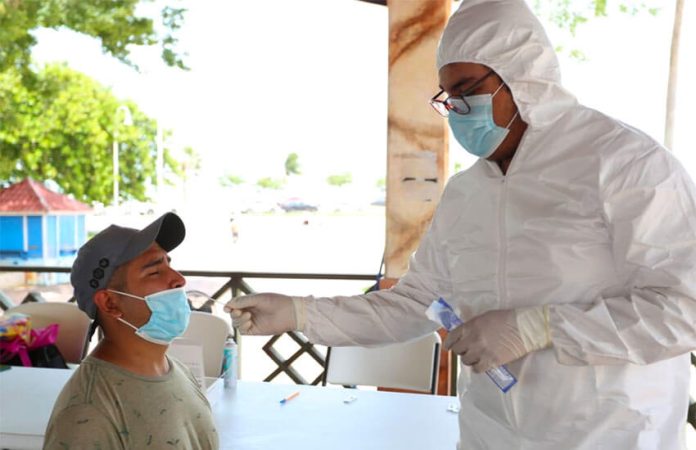A new single-day record of 60,552 confirmed coronavirus cases was reported Wednesday, lifting the estimated active case count to more than 325,000 after almost 50,000 new cases were reported on Tuesday.
Mexico City has more than 66,000 active cases, neighboring México state has almost 22,000 and Nuevo León has over 17,000.
Each of Coahuila, Guanajuato, Jalisco, San Luis Potosí and Tabasco has more than 10,000 infections.
On a per capita basis, Baja California Sur has the highest number of active cases with 900 per 100,000 people.
The Health Ministry also reported that the occupancy rate for general care hospital beds in COVID wards had increased three points in 24 hours to 34%. The occupancy rate for beds with ventilators rose two points to 19%.
The federal government is currently administering booster shots to people aged 60 and over, health workers and teachers, as well as first and second shots to adolescents aged 15 to 17 and adults who weren’t inoculated when vaccines were made available to them last year.
More than 82.9 million people have been vaccinated in Mexico, and 92% of that number are fully vaccinated.
In other COVID-19 news:
• Rapid COVID tests that are not approved by health regulator Cofepris are being sold in Ciudad Juárez, Chihuahua, the newspaper Milenio reported. The tests are advertised and sold on social media, the newspaper said.
The chief of Cofepris in Chihuahua said the online sale of rapid antigen tests is out of control. Citing the risk they will return false negative results, Alejandro Torres called on citizens not to buy them.
Several brands of antigen tests are being sold in Juárez for 280-500 pesos (US $14-$24) each. One vendor told Milenio that he personally imports the tests from China.
• The Mexico City Health Ministry has detected that some non-government testing stations in the capital are using Chinese-made rapid tests that are not approved by Cofepris. Non-authorized rapid tests can also be bought online in Mexico City and in stores in the capital’s historic center.
Mexico City authorities last week set up 11 “macro-kiosks” where residents can access rapid antigen testing free of charge. However, tests are limited and some people have complained of missing out.
UPDATED: This story has been updated with new information reflecting the new case numbers reported Wednesday.
With reports from Milenio, Televisa and El Universal
